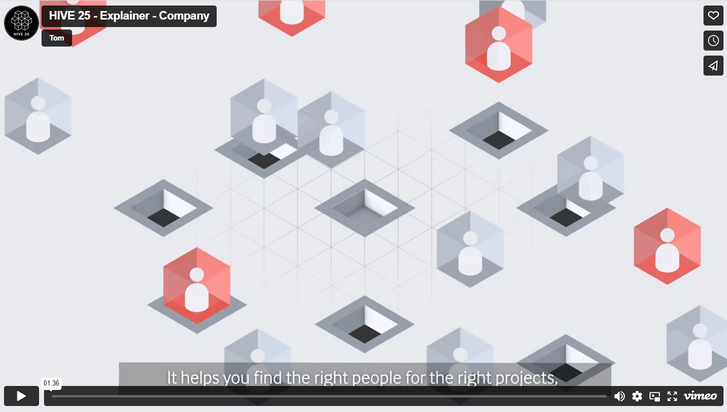
How to tap into a global talent pool – and successfully manage the six biggest challenges
“A global talent pool can help organisations adapt to evolving market needs and achieve higher levels of performance and revenue.
“In the face of growing competition and a perceived talent shortage, companies must take their recruitment and hiring strategies across international borders.
“Organisations can build and retain world-class talent by identifying global talent hubs, focusing on excellence in onboarding, and working with partners to navigate HR nuances.” – World Economic Forum
Football, fashion – and broadcast – lead the way
The football and fashion industries have been successfully acquiring talent from a global pool for decades. More recently, advancements in tech and reductions in associated costs have enabled broadcast production to follow: even before the pandemic, remote production was reducing carbon footprint, broadening capabilities, cutting travel budgets and saving companies money on shipping and equipment.
When Covid turned economies, working practices and entire industries on their head, remote working practices and production were very quickly shoved to the forefront of the broadcast industry, where they remain for many businesses, particularly those who aren’t built upon facility-based operations.
The path broadcast had begun to tread soon became a major thoroughfare, albeit one lined with difficult challenges as well as huge benefits.
Benefit from tapping into a global talent pool
The need for organisations to find, attract and retain talent who happen to be in the same geographical location as the business has all but disappeared.
Cloud-based assets, more robust connectivity and improved software have enabled much of the workforce in production and post-production to live and work well away from studios, post houses or traditional broadcast hubs.
Instead, choices are being made based on work/life balance, freedom, families and flexibility. Commuting, for many, has become optional.
Embrace diversity and inclusion
Hiring talent from different countries can lead to different ways of approaching challenges and solving problems. Experts with combined experience and knowledge enable their organisation to tackle and overcome a wider range of challenges that arise.
Varying individuals’ viewpoints can lead to a wider, deeper company perspective.
Additionally, if staff are located in different timezones, work can be done around the clock.
Build a stronger company culture
If a company culture is built around in-person team-building and includes activities such as Friday drinks in the office, it might need adjusting in order to accommodate colleagues from around the world. When such in-person bonding experiences are limited by a close geographical spread, alternatives might be explored.
Regular and frequent opportunities for team members to voice concerns and celebrate wins strengthens company culture. Such opportunities can help employees understand more about how the company they work for operates, and learn its values, core strategies and so on. Encouraging interaction among a global workforce can help cultivate a positive culture.
Professionals want to work for and stay with businesses who have a clear purpose and support their staff outside work as well as in. A huge 85% of professionals say an organisation’s purpose is important to them when considering a new role.

The challenges for businesses:
1. The need for a joined-up process
Organisations must now cultivate and retain an understanding of why people choose to work where they do, both in terms of their physical location and their employer.
Engaging a global talent pool to improve creative and financial results requires a robust, joined-up process. Business survival in the broadcast and production industries demands successfully identifying talent, onboarding with clarity and intent, and devoting attention to hugely important details such as paying people quickly and efficiently.
Working seamlessly across borders makes it easier than ever for talent to switch to a more suitable position which makes them happier. Flexible, remote working has become an effective strategy to retain staff.
2. Talent shortages
There’s a shortage of qualified, skilled, experienced workers across multiple industries around the world.
Globally, 75% of employers have reported difficulties in finding the talent they need.
Almost 95% of employers looking for tech talent have encountered a skills shortage over the past year.
Staff shortages in the UK broadcast and production industries are not new.
As skills gaps persist, tapping into a global pool of talent is essential whenever possible.
3. Identifying the best people
Successfully attracting and retaining the best talent from around the world starts with identifying who those people are, where they are online and how they communicate. Only then can adverts and job descriptions be written – in a local language where necessary – placed in the right outlets or platforms and offer hope that the best people are both available and able to see the publicity.
If you’re a UK company, are you geared up for hiring people for whom English is not their first language?
While your organisation is going global, so too are your competitors. They’re also looking to hire the best people. Does your organisation have the team in place whose job is solely focused on identifying and attracting talent?
Developing an international hiring process takes investment and commitment but is essential to lasting commercial success.
4. Hiring
The hiring process however is not easy. If a hiring manager seeks talent with a minimum level of experience, certain qualifications from a particular country, city or institution, and a specific skillset, they might quickly discover their options are limited.
What comes next could be an expansion of the geographic region from which talent is sought, or perhaps a loosening of the job’s requirements.
In a word: compromise.
Talent acquisition based on a ‘right place, right time’ mentality is no longer effective. Nor is it necessary.
5. Working with unknown data
Making informed staffing decisions based on what you know rather than unknown data is a unique challenge. Problems are much easier to solve when you’re able to see them coming and pre-empt them.
When you’ve managed to bring in the right talent, what happens when one or more key people cannot work through illness or because they’re celebrating a public holiday in their homeland of which you had little knowledge?
Using data, bright companies are able to spot staffing shortages ahead of time. They can identify jobs which prove difficult to fill. They can search for people with valuable skills and relevant experience to build their freelance network.
Instead of wasting time chasing busy or unavailable workers, smart businesses use live roster updates built on real-time information. They can update all relevant parties to crucial information in one place.
They can easily track spends and budgets without the need for ‘dumb’ spreadsheets, or outdated and inaccurate information.
6. Compliance, admin and legal complexities
Red tape is everywhere when it comes to hiring talent from a global pool. Complexities need navigating and compliance requires close attention by experts when a business takes on staff from overseas.
It’s hard to avoid common mistakes when you don’t know what they are.
Smart companies use Frame 25 / Hive 25
Navigating international hiring doesn’t have to be painful. By using a partner such as Frame 25, the admin is eased so you’re able to focus on what you do best.
Frame 25’s rostering platform for freelancer management, Hive 25, is the perfect solution for the demands of hiring, offering speed, flexibility and rapid deployment just when you need them most. It brings together freelancers and companies looking to locate talent quickly and intelligently.

We turn recruiting into a seamless process, and can respond to your staffing needs efficiently, eliminating the reliance on spreadsheets, outdated and inaccurate information, and ensuring each user can remove repetitive administration duties.
Our joined-up process – attracting, hiring, onboarding and retaining the right people from global regions – is unrivalled.
We offer companies the best chance of managing the shortage of talented workers. We help smart companies fill the skills gap.
Avoid the ‘right time, right place’ mentality and having to compromise on finding the best people.
Let Frame 25 unravel the red tape so you can focus on what you do so well.

Netflix, Paramount and Warner Bros.: What the Deal Means for the Broadcast and Production Industry

How the Employment Rights Act 2025 Is Reshaping the Freelance Market
